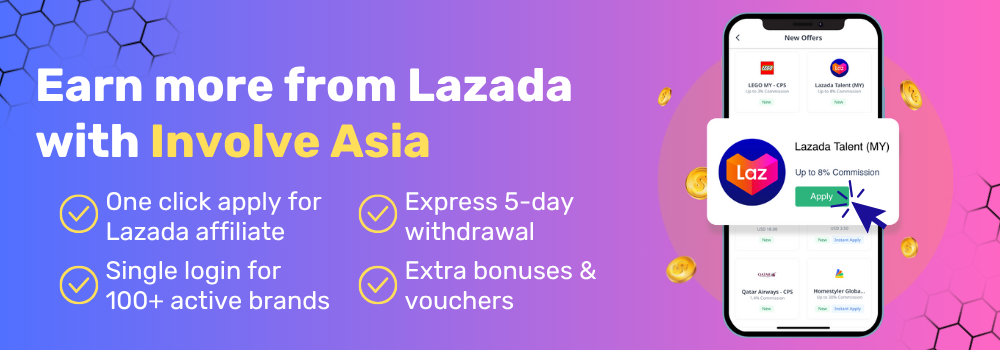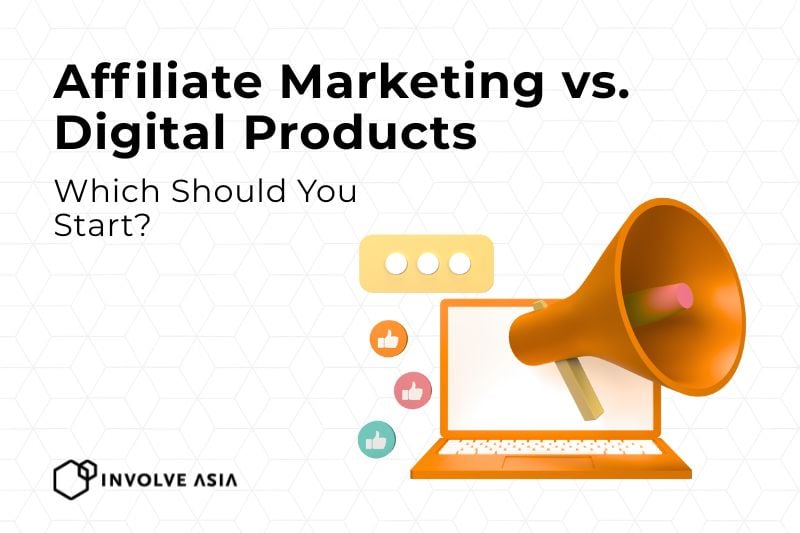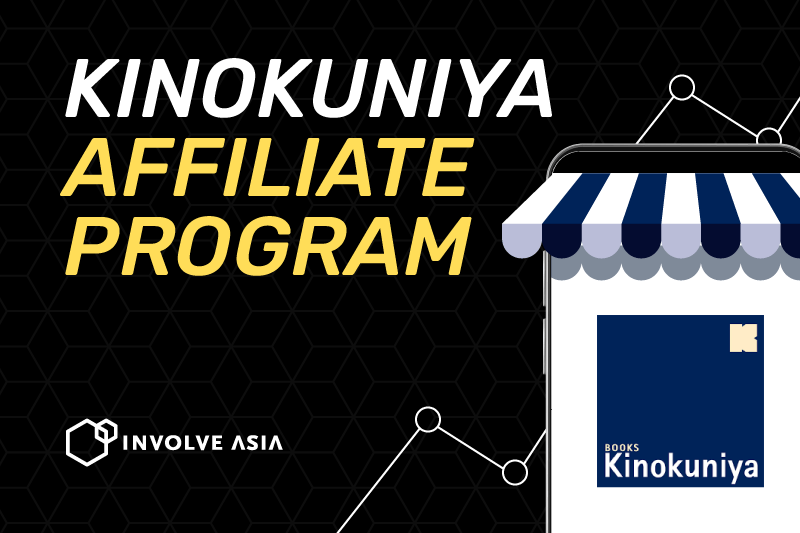Looking for a profitable online business model but unsure whether to choose affiliate marketing or selling digital products? Both are highly lucrative and offer ways to earn passive income online, but they operate very differently.
Affiliate marketing allows you to earn commissions by promoting products or services created by others, while selling digital products lets you create and sell your own online assets, such as eBooks, courses, templates, or software.
Which business model is easier, more scalable, and offers higher earnings potential? Let’s explore the key differences, benefits, challenges, and profitability of affiliate marketing vs. digital products.
What is Affiliate Marketing?
Affiliate marketing is a commission-based online business model where individuals promote products and earn a percentage of each sale made through their unique affiliate links. This method requires no product creation, inventory, or customer service, making it an attractive choice for bloggers, YouTubers, influencers, and digital marketers.
Typically, individuals are required to join an affiliate program and apply to become an affiliate. The process is quite the same on Involve Asia!
How Affiliate Marketers Earn Money
Affiliate marketers earn money through various commission structures:
- Pay-Per-Sale (PPS): Earn a percentage of each sale made through your link.
- Pay-Per-Click (PPC): Get paid based on the number of clicks on your affiliate link.
- Pay-Per-Lead (PPL): Earn commissions when someone completes an action, such as signing up for a free trial or subscribing to a service.

Benefits of Affiliate Marketing
- Low startup costs – No need to create products or manage inventory.
- Passive income potential – Earn commissions long after creating content.
- No customer service required – The product owner handles fulfillment and support.
- Scalability – Promote multiple products across different niches.
- Flexible work-from-home model – Work from anywhere with an internet connection.
Challenges of Affiliate Marketing
- Traffic dependency – Without traffic, you won’t make sales.
- High competition – Many affiliates promote the same products.
- Commission cuts – Companies can change or reduce commission rates.
- Delayed earnings – Some affiliate programs have 30-90 day payout cycles.
Read: Comparing Affiliate Marketing vs. Blogging for Side Income
What are Digital Products?
Digital products are intangible goods that can be created once and sold repeatedly without additional production costs. They include eBooks, online courses, digital templates, stock photos, software, printables, and memberships.
How Digital Product Sellers Earn Money
Selling digital products provides multiple revenue streams, including:
- One-time sales – Sell eBooks, templates, or stock images as single purchases.
- Subscription-based models – Charge for monthly memberships, software access, or exclusive content.
- Course enrollments – Sell educational programs on platforms like Udemy or Teachable.
Benefits of Selling Digital Products
- High-profit margins – No production or shipping costs, leading to higher earnings per sale.
- Scalability – Once created, digital products can be sold infinitely without additional effort.
- Full ownership and control – Unlike affiliate marketing, you keep 100% of the revenue.
- Automation-friendly – Use funnels, email marketing, and automated sales to increase income.
Challenges of Selling Digital Products
- Product creation effort – Creating a high-quality digital product takes time.
- Customer service requirements – Handling refunds, complaints, and support.
- Market saturation – The competition for courses, eBooks, and templates is increasing.
- Marketing dependency – If you don’t market your product effectively, sales will be low.
Key Differences: Affiliate Marketing vs. Digital Products
| Factor | Affiliate Marketing | Selling Digital Products |
| Income Model | Commission-based earnings | Full revenue from direct sales |
| Startup Costs | Low (website, hosting) | Medium (tools for product creation) |
| Scalability | High – Passive income grows over time | High – Can sell unlimited copies |
| Earnings Timeline | Long-term passive income | Immediate sales potential |
| Customer Service | Not required | Required – Handling refunds and support |
| Risk Level | Low | Medium – Requires time and effort to create products |
Which Business Model is Easier to Start?
Affiliate marketing is easier because it requires no product creation, low costs, and no customer service. Selling digital products requires content creation, marketing strategies, and ongoing customer support.
For beginners, affiliate marketing is the better choice due to lower risk and a faster earning potential. Ideally, you should create the types of products you have tried promoting via affiliate marketing. This way, you know there’s actual demand for it!
Which Business Model is More Profitable?
- Short-term: Selling digital products can generate quick revenue if you have a great product.
- Long-term: Affiliate marketing builds passive income, making it more sustainable.
If you want quick profits, sell digital products. If you prefer consistent, long-term income, affiliate marketing is better.
Can You Do Both Affiliate Marketing and Digital Products?
Yes! Many entrepreneurs have combined both. You can use affiliate marketing to promote related products while selling your own.
Offer digital products as upsells to affiliate traffic then leverage email marketing to increase lifetime value of your customers.

Conclusion
Both affiliate marketing and selling digital products are great ways to earn money online.
If you prefer low startup costs, passive income, and easy scalability, choose affiliate marketing. If you enjoy creating content and want full control over pricing, sell digital products.
For maximum success, combine both models!
👉 Sign up here to start affiliate marketing with Involve Asia
Frequently Asked Questions (FAQs)
Is selling digital products a good side hustle?
Selling digital products is one of the best side hustles because it offers high-profit margins, passive income potential, and scalability. Unlike physical products, digital goods require no inventory or shipping, making them low-maintenance and cost-effective.
Once you create a digital asset like an eBook, online course, template, or stock photo, you can sell it repeatedly without extra costs. Many entrepreneurs use email marketing, SEO, and social media to automate sales, making it an excellent way to earn passive income while working a full-time job. With the right strategy, it can grow into a full-time business.
What is the most profitable digital product?
The most profitable digital products are those that provide high value and can be sold repeatedly with minimal effort. Some of the top-earning digital products include:
– Online courses – High-ticket and scalable.
– Membership sites – Recurring revenue from exclusive content.
– Digital templates – Sellable across multiple industries (Canva, Notion, Excel).
– Ebooks and guides – Low-cost to create but can generate consistent passive income.
– Software and mobile apps – High-demand and subscription-based.
Successful sellers use SEO, content marketing, and paid ads to scale their digital product business for maximum profitability.
Can digital marketing be a side hustle?
Digital marketing is an excellent side hustle because it requires minimal investment and offers high earning potential. Businesses constantly need help with SEO, social media marketing, PPC advertising, content marketing, and email campaigns, creating opportunities for freelancers.
You can start by offering small services like blog writing, social media management, or paid ad management and scale as you gain clients. Many digital marketers use platforms like Upwork, Fiverr, and LinkedIn to find clients. With the right skills and strategies, digital marketing can provide consistent income and the flexibility to grow into a full-time business.
How much can you make selling digital products?
Earnings from selling digital products vary widely based on niche, pricing, and marketing strategy. Beginners might earn $100–$500 per month, while experienced sellers make $5,000–$50,000+ monthly from online courses, templates, and memberships. High-ticket digital products, like premium courses or software, can generate six or seven figures annually.
The key to maximizing profits is leveraging SEO, paid ads, email marketing, and sales funnels to drive traffic and automate sales. Since digital products can be sold infinitely with no production costs, they offer one of the best passive income opportunities for long-term success.







